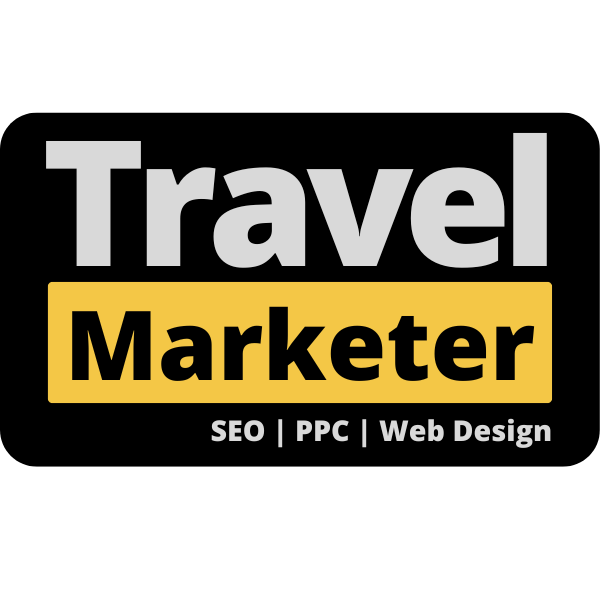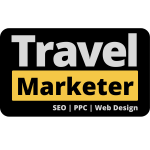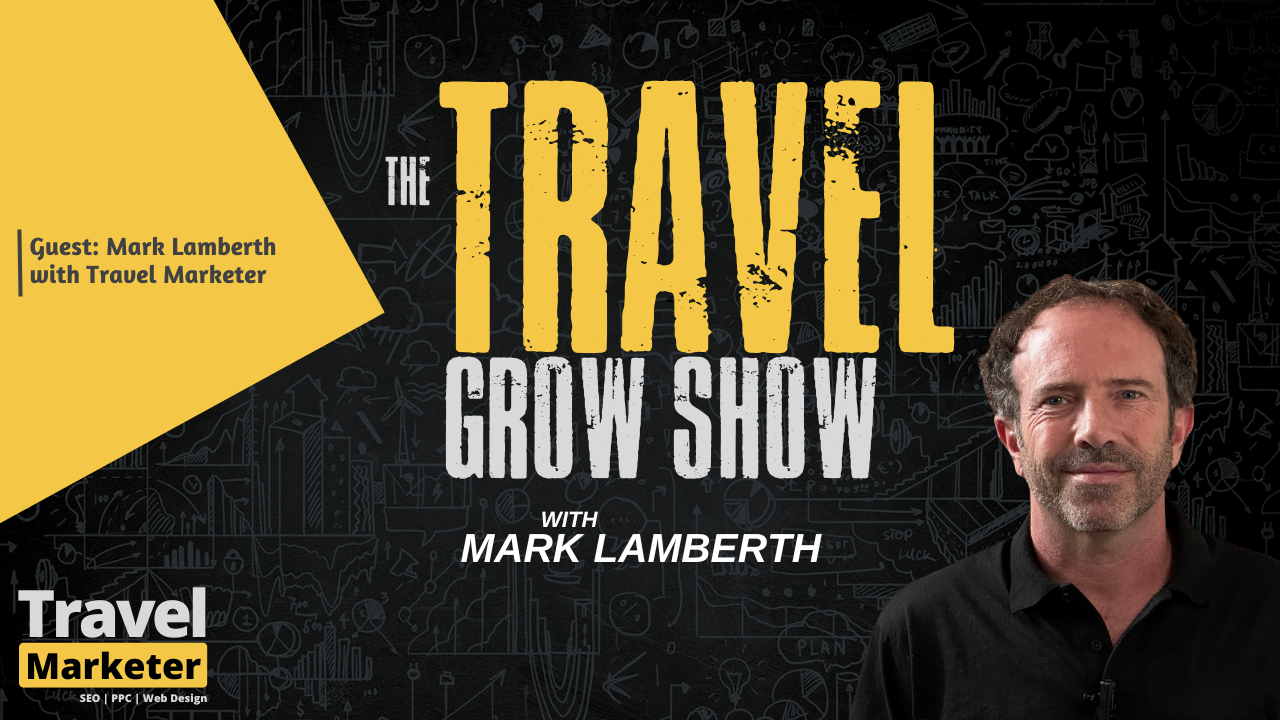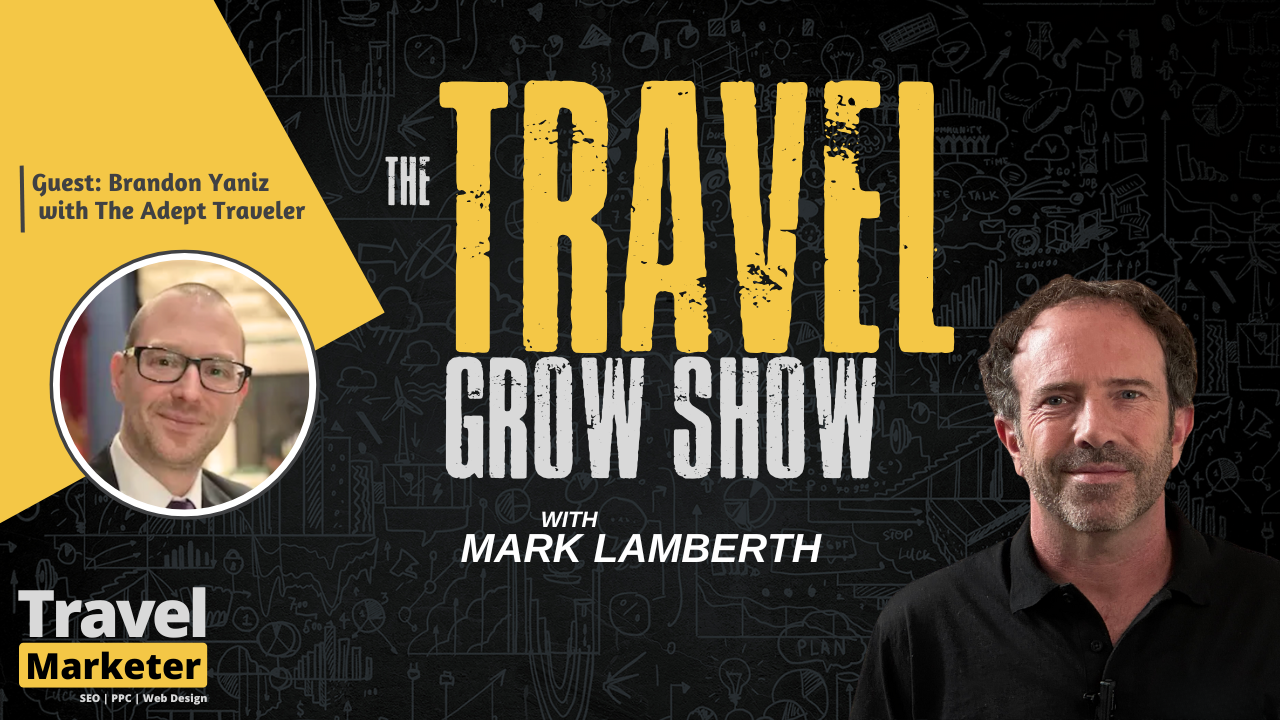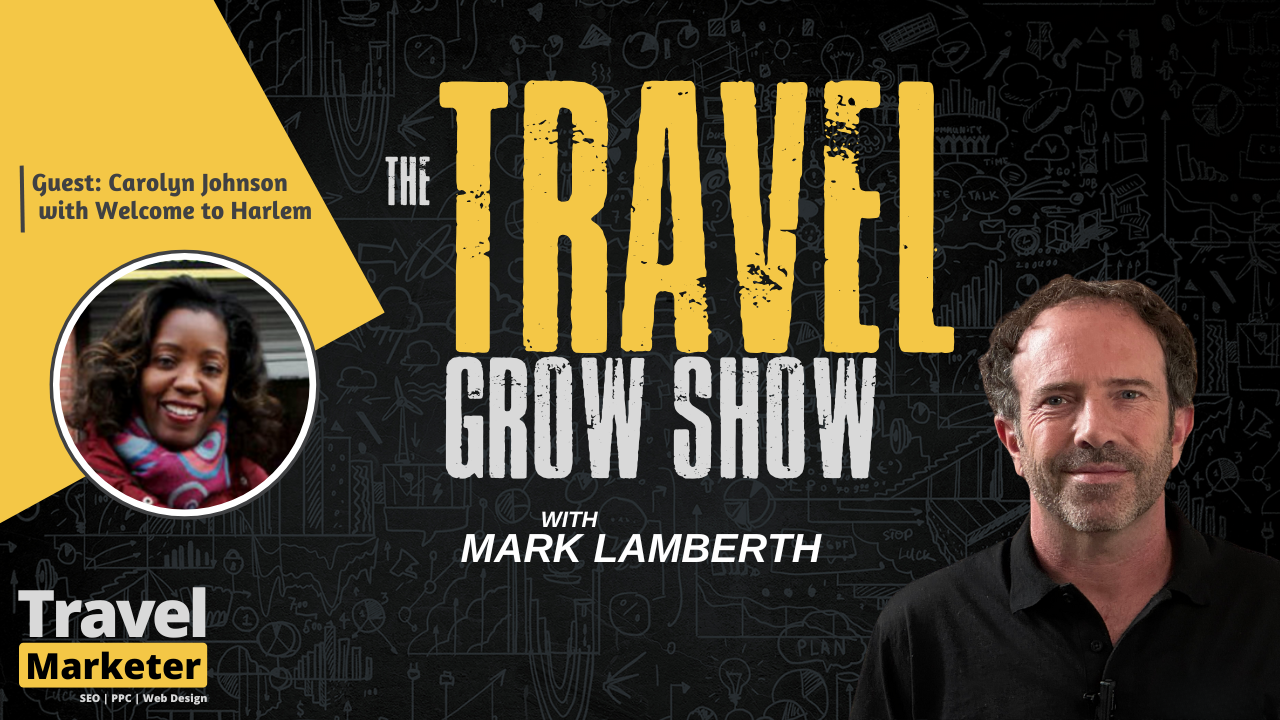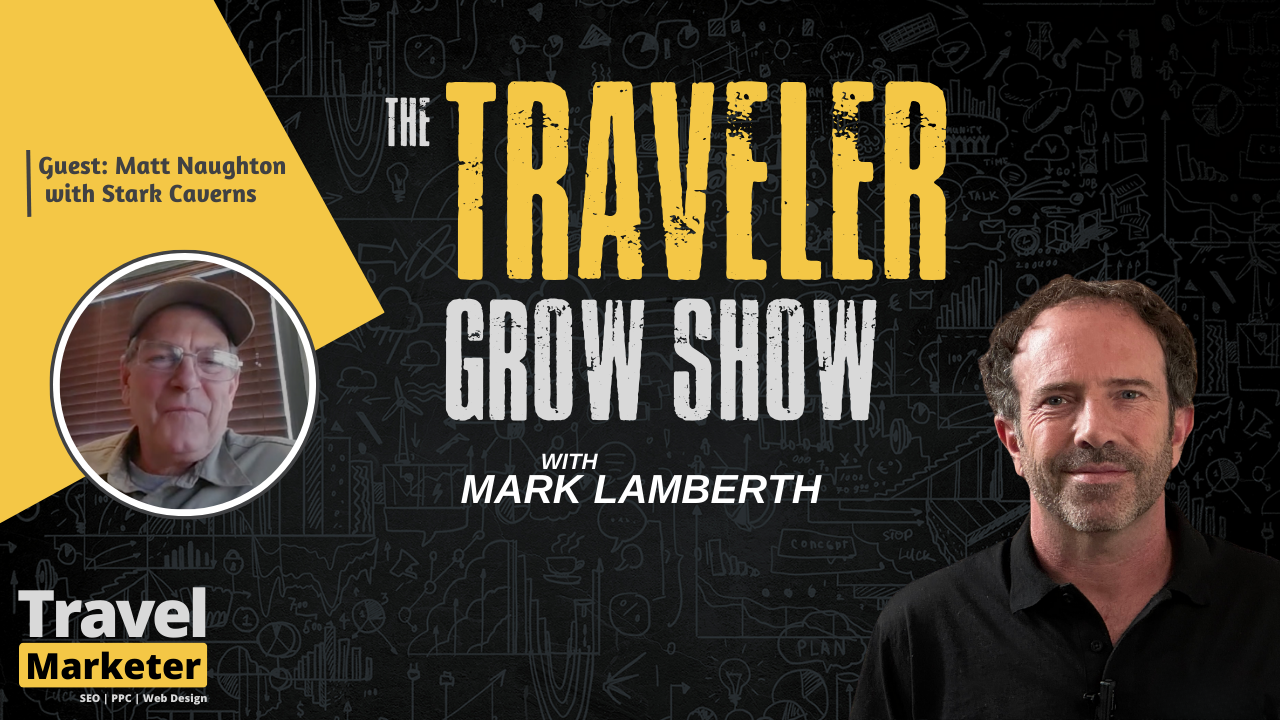Travel Agency Marketing: Redefining Travel Advisory in the Post-Pandemic Era
High-end remodeling company Beautiful Home Services, founded by Andrew Blate and Craig in 2006, has built a reputation for honesty, exceptional craftsmanship, and specialization in kitchens and bathrooms. By narrowing their focus, they established a highly profitable and efficient business model. Andrew highlights how long-term employee retention and strong leadership are pivotal to maintaining their company culture and delivering consistent quality.
Brandon Yaniz, founder of The Adept Traveler, has revolutionized the travel advisory industry with his unique approach to trip planning. Born out of personal necessity due to his visual impairment, Yaniz’s agency initially focused on accessible travel but quickly expanded to serve all types of travelers.
The Adept Traveler’s success lies in its meticulous planning, the client education process and nailing his travel agency marketing. Yaniz and his team anticipate potential travel disruptions, from airport strikes to political unrest, and prepare clients for various scenarios. This proactive approach ensures that travelers are mentally prepared and equipped to handle unexpected situations
"Minor inconveniences for able-bodied people can be major disasters for somebody with a disability. So planning and client education are vital to having a good trip." - Brandon Yaniz
Despite being a relatively new agency, The Adept Traveler has garnered numerous industry accolades, including the prestigious Magellan Award. Yaniz’s commitment to excellence and customer service has set a new standard in the travel industry.
Operating as a solo entrepreneur, Yaniz manages to serve a diverse clientele by leveraging strong relationships with suppliers and collaborating with specialists when needed. His daily video series, “Today in Travel,” keeps clients informed about industry developments and has become a valuable resource for travelers worldwide.
To learn more about Travel Agency Marketing reach out – we’re happy to advise you!
Topics Discussed
- The Adept Traveler’s Origin Story
Brandon Yaniz’s journey from tech entrepreneur to award-winning travel advisor, driven by personal challenges and a desire to help others. - Accessible Travel Planning
How The Adept Traveler caters to travelers with disabilities while applying the same thorough approach to all clients. - Proactive Trip Planning
The agency’s unique method of anticipating and preparing for potential travel disruptions. - Client Education and Support
Emphasis on informing clients about possible issues and providing continuous support throughout their journey. - Balancing Able-bodied and Accessible Travel
The business model that allows The Adept Traveler to serve both markets effectively. - Industry Recognition
The agency’s approach to awards and accolades, focusing on service quality over self-promotion. - Travel Agency Marketing
How Brandon manages his business single-handedly and collaborates with specialists when needed.
Audio Transcript
Mark Lamberth:
Hello and welcome to another episode of the Travel Grow Show. My name is Mark, I’m your host, and today I have the pleasure of speaking with Brandon Giannis from the Adept Traveler in Elgin, Illinois. Brandon, thanks for being with us today.
We’ll be talking about all thinks to help with your travel agency marketing.
Brandon Yaniz:
Thank you for having me, mark.
Mark Lamberth:
Fantastic. Brandon, we’ve taken a lot of look at your website and some of your different materials, and it looks like you guys have got an amazing business over in Elgin. Maybe you can tell our listeners a little bit about the business, kind of the history and what you at today.
Brandon Yaniz:
Well, I mean depending on how much time you have, I’d be happy to launch into the history. The agency is relatively new, believe it or not. We started in 2021 during the pandemic. The reason we started is I’m legally blind. I have a 10 degree field of view, so I’m very narrow, focused on what I can and can’t see. I can’t see stuff here, but I could see stuff here. I’ve been an entrepreneur since I was 19 years old, originally starting in tech. What I noticed throughout the years is as my vision got worse, it was harder to pick up good clients. If I took the stick in, I was immediately defending the disability and not explaining the value I brought to clients. If I didn’t take my stick, my vision istic, the classic blind stick blind came. If I didn’t take it in, I’d bump stuff, miss handshakes, all sorts of embarrassing things, and I wouldn’t get the project.
So as my vision got worse, the quality of my clients decreased. And when the pandemic hit, of course all the projects I had laid out for the next 18 months got pulled due to economic uncertainty and they should have. So I was sitting there with no income, no projects, nothing, and I was able to sit down and with my wife, decide what I really wanted to be when I grew up. And so we put together a list of criteria. The first was that my disability had to be an asset. The second was that it had to be something I love to do. And the third, I wanted to help people for a change. I’ve been helping corporations my entire adult life, and when we took those three things, the only business that made any sense was a travel advisor. So I decided to start a travel agency in the middle of a pandemic where travel is absolutely insane, which was honestly the best time to start because whenever you start anything and you’re a novice, you don’t know if you are not giving correct information necessarily because you might not know where to look or what to find or how to handle it.
During the pandemic, everything was chaotic, everything was insane, things were changing so quickly. Sometimes multiple times a day, a country’s opened, it’s closed, it’s opened, it’s closed. It was so insane that learning just how to find the information about what was going on with the pandemic turned out to be invaluable. And that’s the process I use now for finding out information about just about any destination supplier, any requirements for a country, anything like that. It was really beautiful. Anyways, I sort of digressed there. So we started in the pandemic, and originally I was going to be an accessible focused travel agency. I’ve used a few travel agents in the past who claims they were accessible travel agents, and they just didn’t understand it. They threw me in a wheelchair equipped room. They didn’t listen to what my needs were, and they just didn’t get it.
They didn’t have anybody with disability on staff, so they just didn’t understand what the needs of a disabled traveler were. And so I was going to come into this as a disabled traveler and apply everything I’ve learned traveling to how I was going to plan trips. And the biggest thing that a disabled traveler needs outside of an understanding of what their restrictions are is that you have to understand that minor inconveniences for able-bodied people can be major disasters for somebody with a disability. So planning and client education are vital to having a good trip. So one thing we do is we look at where the pain points could be. Usually it’s involving flights, especially if you’re flying more towards a busy season or depending on where you’re arriving. Are there strikes going on in the airport, you’ll be arriving or departing from? What are those possible problems you can encounter?
And we sit with our clients and we explain to them, okay, this is what could go wrong. This is what you do if these things go wrong and call us as well, but while you’re going through the process, you let us know and we’ll work the problem on our end and you work the problem on your end and we will make it work. And just having that sort of safety net and that sort of planning and preparation for our clients really was great. And we sort of had an epiphany as we were originally doing this for accessible travel is that this is how travel should just be planned for everybody, not just people with disabilities. Everybody should have access to this. It just makes have some support,
Mark Lamberth:
Have some accessibility, be able to call someone when something goes wrong.
Brandon Yaniz:
Well, if you’re going to have a trip and you’re flying in an area, let’s say you’re flying over to Europe in the summer, there’s tons and tons of strikes throughout Europe in the summer. Their labor laws are much different than ours here. So strikes could, depending on the country and the airport you’re touching in the strike could pop up within a day just out of nowhere. And so we watch those very closely. What’s going on in any country our people are traveling to. We watch what’s going on politically with their neighbors. We watch what’s going on with the labor forces that could touch them, public transit airports, air traffic controller, stuff like that. And we let them know what things are looking like up until their trip so they’re aware of what potential problems could occur. So if they arrive at an airport and a strike does happen, hopefully we were able to notice that it was going to happen.
Have warned them of this and they know exactly what they’re going to do. They know exactly how to deal with it. They’re prepared mentally for it. So this isn’t a surprise. This isn’t something that sort of derails the experience they’re trying to have. They know exactly what’s going to happen, exactly how to deal with it, and they know what’s going to come next. And then depending on what the next step is, are they catching a cruise or are they catching a tour or are they just freeform around the country? Whatever it’s they do, we make sure that everybody along that chain is aware and we make sure that we salvage the trip as best as possible depending on the situations. And our clients love it. It’s really great.
Mark Lamberth:
God, that’s amazing, man.
Brandon Yaniz:
I can get long-winded. I
Mark Lamberth:
Apologize. It’s so great. It’s so great. I had no idea that that was kind of a focus. Well, lemme ask this. I mean obviously we’re just kind of getting acquainted here, but what an amazing story. Is your travel agency focused on this kind of, what do you call disability piece or however I say it kind of niched down to that area of, I mean blind travelers or folks, some type of accessibility issues or is it totally open?
Brandon Yaniz:
So most of our clients are able-bodied individuals.
Learn more from Stark Caverns on this episode.
Mark Lamberth:
Okay, sure.
Brandon Yaniz:
We use that to sort of subsidize the cost of our accessible clients. They need more hands-on. And in the travel businesses, I’m sure you’re aware, we live primarily off of commissions from the suppliers and there are times where the commissions just don’t cover the amount of time that has to go into a trip. And usually what would happen is we would assess fees for that, but people with disabilities, I try to limit the number of fees because I believe that they deserve to travel as well as anybody else. So because that takes more of my time, we make sure we have a number of able-bodied travelers in order to help offset the costs for those accessible travelers. Now you mentioned something, are we blind wheelchair? There’s a general misunderstanding in the able-bodied community about what a disabled traveler is, and it’s complicated. Unfortunately, every traveler, disabled people especially have their own unique set of restrictions, requirements, needs, and it’s not necessarily based on their disability in all areas.
I’ve known people in wheelchairs that will outwork me in any country. It doesn’t matter the incline or anything like that. I mean, they’re in phenomenal shape and they’ll make it up a hill before I can and I’m perfectly capable. So it’s each traveler, understanding what that traveler needs is an integral part of planning for any trip, especially someone with disabilities and disabilities are so wide ranging. I mean, we could be talking neurodivergent where we could be talking another non-visible physical problem, dietary something else where they don’t appear to be disabled, but if something goes wrong, epileptic, what have you, people with obvious disabilities of course, but then there’s your travelers that just are NSIs and they’re very uncomfortable traveling out of the country. They haven’t necessarily done it. And the same process we use for somebody in a wheelchair or somebody that’s blind or somebody that’s neuro divergent is the same process we use for novice travelers or even expert travelers. We apply the same process and let our clients sort of tell us what they need and then we wrap our service around their needs while making sure they’re educated and that we plan, even if they’re experienced traveler, we plan for what the worst case scenarios are in every point. So they’re aware of it as well as what to do. It makes sense.
Mark Lamberth:
Yeah, it does. It does. It’s amazing. It’s great. I’m such a newbie in learning about just the kind of intricacies of this, and it’s fascinating. You guys have been around a short time man, but you guys have won some incredible awards, really one of the most awarded companies we’ve talked to, the most awarded. We get 2024 Gold Magellan Award, 2022, silver Ma, accessibility to Travel Agency of the Year, super competitive industry here. Have you guys, have you had a process of it going out and sort applying for different awards or things or just kind of completely focused on customer service? Have you had any kind of strategy of getting so much amazing recognition for your great work in such a short period of time?
Brandon Yaniz:
So the only award that we’ve actually gone out to get was the Magellan Award, and the first time I went out to get it, it’s because that award is sort of judged by the who’s who of the travel industry. They don’t really deal with travel agency marketing, it’s more about your service. You have former C-suite executives from major airlines, cruise lines, you have people, editors from National Geographic and other travel magazines. And really every year when you read the list of judges, it’s really impressive. And so the first year I did it, it was more because I was curious how what I was doing stacks up when put in front of that level of experience. I did it more as a barometer, as a gauge. Is what I’m doing worth it? Is it providing value to people? And so our submissions have been for our video series today in travel, I would like to say happens every day, but we’ve just getting out of our busy period.
So we’ve been sort of dark for a month, but the idea behind that is an educational series on what’s going on in the travel industry. I try to pick at least one topic every day that I think people who are traveling or considering traveling should be aware of. And that could be anything from strikes in London, Heathrow Airport, political unrest in Peru, what airlines are flying into and out of Israel or what cruise lines are doing, what new offerings have been announced, is there more ships going to Alaska? Is Princess recently decided to get into the European river cruise market. There’s lots and lots of interesting things that are happening and covering this sort of keeps my clients educated on what’s going on and potential clients I hope will find this valuable or any traveler really I hope will find value in it. And so we submitted the video series and we were lucky enough to win a silver that year.
And so now that I did it once, I of course have to do it every year. And thankfully I’ve won every year and I’m very humbled by that because again, I’m putting my work in front of the who’s who of the travel industry. So it’s very, very humbling and it’s a big honor to win that one. The rest of the awards are largely word of mouth or submission from clients or stuff along those lines outside of the Magellan Awards, we don’t actively seek recognition. We just try to do the best work we can for our clients and that companies have decided to start evaluating us and awarding us for various things. It’s really been awesome.
Mark Lamberth:
Wow, how
Brandon Yaniz:
Exciting. That’s just amazing that people find us, but we do the best work we can and thankfully the universe is rewarding us for that.
Mark Lamberth:
I love it. How many folks do you have on your team right now?
Brandon Yaniz:
It’s just me actually.
Mark Lamberth:
Just yourself. Okay, great. And then getting things done. Do you have support team around the world at all, or how do you kind of scale if you have any extra work or are there colleagues or collaborative partners that you work with in different relationships to get things out the door if needed?
Brandon Yaniz:
There’s a few people I work with that have specialties in areas that I don’t necessarily have specialties in. For example, adventure travel. If you want to do mountain climbing or rock climbing or kayaking down whitewater rafting, that’s not my thing. I don’t have experience with it because of my disability. It’s just something that’s completely out of my purview. Disney is another one. I can book Walt Disney World, but if you really want to get the most of it, I prefer to pass off to an advisor that specializes in Disney because it’s such a big experience. If you’re going to Walt Disney World and to really get the most of it, you need somebody that’s passionate about it. Somebody that, and the advisors that specialize in it visit Walt Disney World once, twice a year, every year they’re there. They’re passionate, they’re fanatic. It’s fantastic. And if you’re going to do that, that’s the type of advisor you need.
So if it’s something that’s outside of my purview, I refer off. But everything else, most of what we do is we rely on our suppliers, which are cruise companies, tour companies, stuff like that. Absolutely love tour companies. They know in any country what you want to see, even though you may not know what you want to see. And they get, of course, the best rates moving people through those hotels all the time. So it’s really a great value. And most of the tour companies we use are fantastic. We’re constantly evaluating our suppliers and if anybody starts slipping, we drop ’em. We just stop using ’em. I’m not going to risk my reputation on a supplier that may not provide the experience my client’s looking for. So that’s a big part of it. We do have a couple companies we use that provide support on the ground in the event of an emergency. This is a supplement to travel insurance. I’m a big advocate for travel insurance, but depending on the needs of the client and where they’re going, we may need to pay a third party that will provide 24 hour support and specialize in that specific location in case there is a
Mark Lamberth:
Problem. Amazing. Okay. Wow. And you’ll take care of that, obviously. You kind of get that all put together and taking care of, and if you’re quoting someone for travel and stuff, that’s kind of included in there and it’s ready to go when they set off on their adventure.
Brandon Yaniz:
Yes. And then of course my cell phone’s on all my clients have my cell phone number. So if there is a problem, I’m reachable 24 7, wake me up at night, four in the morning, I don’t care if there’s a problem, you let me know and we can try to work through it and sort it out as best as can be sort. That is awesome.
Mark Lamberth:
And regarding just growing the business, are listeners interested in how to grow their tour operator travel brand? I mean it’s all word of mouth and kind the awards and the great work engage have done, or are you guys also promoting with some digital strategies or some other kinds of ways of getting the word out?
Brandon Yaniz:
We primarily do word of mouth.
All my businesses have always been primarily word of mouth. I like to keep my marketing budget very tight. That being said, the biggest marketing push we do is our digital assets, our website, which is I think the last look, we were at 3,400 or 3,600 indexable pages. Our blog section, our news section, we’re starting to get into a travel questions section. And then all those videos of course are pushed out through a variety of platforms, YouTube, Facebook, Instagram, TikTok X, formerly Twitter. So we make sure that the information is out there for people and we’ve had a surprising amount of clients come in just off the videos, which again is wonderful. They like something we said or a topic we covered. They call for questions and we end up getting them.
Mark Lamberth:
I love it. I love it. Well, fantastic. So Brandon, we talked about a lot of great stuff here today about growing your agency, a depth of travel. I mean, it’s here just around the last few years, but it’s a ton of awards, has got an amazing video series on their YouTube channel. We talked about some kind of accessibility issues that come up with travel and kind of a handicap. I’m always trying to say things right, but I never know exactly how to do it. But a business inspired by personal things going on, this is kind of where I’m coming from. So this is a business, I’m going to start. I absolutely love how you and your wife kind of looked at what your values are. Essentially it needs to fit into this and then decided the next business we’re going to do is this because of that.
Brandon Yaniz:
Well, one of the things I learned, if you don’t mind indulging me for a moment, I started my first business at 19 years old during the dotcom bubble, and nobody should do business with a 19-year-old, I’m sorry, but right skillset, right time. It was really a very interesting time. the.com bubble and then post the bubble, the one thing I really learned is that if you’re going to be an entrepreneur, you have to be passionate about what you’re doing because you’re going to put in long hours. You’re not going to work a nine to five, five days a week, and that’s it. You’re not going to be able to just knock off whenever you want and go play golf or go on vacation because your schedule is going to be determined by the business needs. So whatever it is you do, you have to be passionate about it and you have to love it.
If you don’t, you’re going to be miserable. So I loved what I was doing before and when I decided to do something new, that was one of our top three criteria. It had to be something I loved doing so that if I have to do a 16 or 18 hour day, or I have to work seven days a week and 12 hour days or whatever it is I’m doing, I love it. It’s not something I’m going to regret. It’s not something, I’m not going to wake up in the world and think, oh geez, I got to go to work. I don’t want to do this. I worked all day Sunday, all day Saturday. Now it’s Monday and I got to go work 12 hours. Oh, I don’t want to, I don’t want to work 12 hours. But when the work is there, you’re like, well, it’s at the point. This is just a moment in time. Get through it, and at least doing something I love. So fantastic.
Mark Lamberth:
It’s such great advice, man. And there’s a lot of conversation about that on both sides of that, right? And I mean, we’re here in hustle culture, that particular thing you just described, there has been a core question of ours a lot over the years. And for instance, we’ve had different agencies that we’ve started, Haley and I and some clients that we like working with and we really wanted, but it’s not really our passion. And so we migrated over towards travel. It is our passion. And so I love that you said that because absolutely what we’re doing as well. And so you had, I mean, the work that the entrepreneur and the company that you had started before, you’ve always kind of loved the work that you do, and you’ve just followed this advice your whole career.
Brandon Yaniz:
I fell into my first company and I was very grateful for the opportunity I was going to college for Compsci, but at the time, there wasn’t that unless you went to one of the really good universities for the program, there really wasn’t a lot that you would learn up until your bachelor’s. So I was very disenfranchised that I wanted to learn about computers, networking, the whole thing I wanted, wanted to take in as much as possible, and I was self-taught up until that point, and they really weren’t teaching me anything. And then I fell in with a group of entrepreneurs by accident who helped me start my first company and said, don’t continue with college right now, stop college, do this, and then if you want, go back later. But this is a unique time in history. You have a skillset that’s extremely valuable. You can do some amazing things if you want to now.
And I took the advice, I started my first company and it was the best thing I ever did. I learned a lot. I was always on the cutting edge of everything. I invented some technologies for some clients. I just did some really spectacular stuff, and it was really hard to pull away from that to go into another industry. Thankfully, I love travel as much, so it wasn’t, once we settled on a travel agency, it wasn’t as big. It wasn’t really that painful. But the moment where I realized my disability was holding me back as a contract developer, one man shop, once I realized that that was a hard moment for me, and it was a little scary trying to come up with what am I going to do that’s outside of what I’ve already done.
Then we settled on Travel Advisor and that. I loved that. Once I heard that, I’m like, oh, yes, I would like to do, I dunno anything about it, but I would like to do that. That’s what I want to do. I want to deal with travel. I want to deal with all of these different countries and cultures and unique things to see and amazing experiences to have, and the food, oh my God, the food. I wanted to know about all of it. I wanted to learn about all of it. And it’s a great industry. I mean, I sit on these Zoom calls and these webinars with suppliers and I learn about all these cool offerings. There is submersibles where the glass is the same opacity as the water, so it looks like the water just formed a bubble around you. I mean, come on, there’s some cool stuff out there. And to see it all and know what’s out there, and then to share it with clients and help them find good experiences, it’s so rewarding. Wow. It’s really the best job actually to have.
Mark Lamberth:
That is amazing, man. How encouraging and exciting. So guys, if you are on the fence and you’re considering a career as a travel advisor, I mean, listen to what Brandon’s saying here. I mean, this is the best job that there is, right? The best gig. I mean, incredible. I mean, I can hear the passion and that just gets us all going, man. It’s how exciting to hear that
Brandon Yaniz:
If you like travel, then this is the best job to have. I was on a Viking cruise recently and there was a gentleman on it, and his wife wanted to take the cruise, and he did not want to be there. And we’re going down the Rhine beautiful, beautiful place, and river cruises are fantastic. So we’re going down the Rhine. We’re in these old beautiful cities, just so much history and culture and things to experience, and this guy was just grumpy, nothing to see in this town. I’m going to go back to the boat having up every tour, every place. I mean, that guy would not like working in this industry. He’d hate it. And that’s okay. That’s him. He’s being him.
Mark Lamberth:
And
Brandon Yaniz:
If you love travel, if you love travel, you’ll love the experiences, then this can be an extremely rewarding profession,
Mark Lamberth:
Man. Amazing. Well, fantastic. Well, Brandon, great. Great interview and just so many great lessons here from your experience and your wisdom here in the industry and your particular take on it. We really encourage travel agents in to really narrow down their offerings, to kind of niche down, to find a way for them to appeal to a certain group of people with a very specific offering. And many times that will grow inevitably, it usually grows into a larger adjacent audiences or everyone. But how amazing to find kind of a slice of the market that you can really deeply connect with in a way that very few people can, and to build up your agency from that. I just absolutely love it. If folks want to get in touch with you, Brandon, if they’re looking for some travel help, if they have some kind of accessibility issues, or if they’re just looking for a great travel advisor to work with, what are a couple of great ways to get in touch with you?
Brandon Yaniz:
Well, the best way to get in touch with us is visit our website. It’s Adept Travel, and that’s it. There’s no.com or anything, just adept travel. That’s the best way to get in touch with us in our contact section. We have numerous ways you can get in touch with us through a variety of different apps, signal, WhatsApp, email, call us on the telephone, whatever works best for you. Additionally, we’re active across all major social media, so we’re on X, Facebook, Instagram, TikTok. So if people want to find us on those platforms and excuse me, reach out to us through them, then that’s fine too. Largely, we try to make it as easy as possible for people to get in touch with us in whatever method they feel most comfortable with, whether that’s a phone call, a text message, or we have a storefront. If people live in the area and want to stop by, we are available for that too.
Mark Lamberth:
Well, amazing. Fantastic. Well, Brandon, thank you for taking the time today. Folks, go take a look at his site. It’s Adept Travel no.com, just adept travel. And yeah, Brandon, thank you for taking your time and sharing all this wisdom with us today.
Brandon Yaniz:
Thank you for having me, mark.
Mark Lamberth:
Yeah, and I wish you absolute best in your business career, man. Thank you.
Brandon Yaniz:
Thank you.
